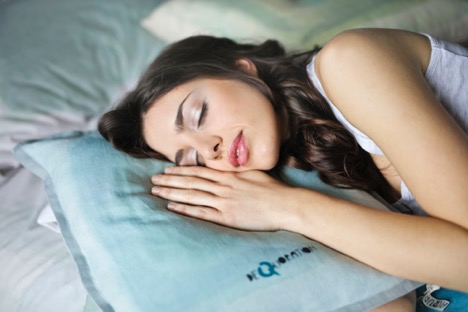Sleep is a 24/7 Process

Sleep is a 24/7 Process
Proper sleep is crucial to physical and cognitive health in countless ways. Evidence demonstrates that poor sleep has a detrimental effect on a far-reaching range of disorders including obesity and type-2 diabetes; cardiovascular disease, hypertension and arrhythmias as well as neurodegeneration leading to dementia, mood disorders and even loneliness. 1
Sleep is actually a 24/7 activity / process. Sunlight tells your brain that it’s daytime and darkness tells your brain that it’s (you guessed it!) nighttime. Your brain reacts to the dark / light changes by producing hormones for the next cycle of asleep or awake. Lack of sunlight during the day and artificial light (TV /phone screens, bright rooms, etc.) at night create confusion for your brain, disrupting your natural daily (circadian) rhythm. Sleep cycles can be disrupted through work schedules, stress, injuries like concussion and a myriad of other things.
QUALITY of sleep is as important as QUANTITY of sleep. Blue light is produced by the sun. That’s good. Blue light is also emitted by electronic devices like TVs and phones. That’s bad if you’re using those devices late at night because your brain ‘thinks’ it’s daytime and blocks the release of important sleep hormones.
It is possible to reset your circadian (sleep / wake) rhythms. Here are some important “sleep hygiene” tips for better sleep recovery:
- Your brain needs a DARK room to produce deep sleep hormones. No electronics. No lights. Blackout curtains if necessary.
- Keep your room cool (about 68°F). Your core body temp needs to be cool to reach deep, restorative sleep phases
- Night is for resting, not heat-producing metabolizing. Have your last food/drink (except water) at least 3 hours before bed.
- NO cell-phones in the room. It’s a light source and the electromagnetic frequencies may stimulate your nervous system.
- No devices and dim the lights 90 minutes before bed to initiate melatonin release and support natural circadian rhythms.
- Sleeping late (and napping during the day) delays the build-up of adenosine, diminishing the drive to sleep at night.
- Research shows SIGNIFICANT improvement in sleep for folks who get 30 minutes of morning sun (or 10,000 lux lamp) daily.
- Beds are NOT for eating, working, TV, etc. If you can’t fall asleep in 20 minutes, get up, read a book and try again later.
- No caffeine after noon and avoid alcohol in the evening.
- EXERCISE builds adenosine, the main sleep hormone. Exercise earlier in the day to allow cooldown and relaxation time.
- Try using relaxation techniques before bed – meditation, mindfulness, breathing techniques, etc.
- Poor diet leads to chronic inflammation, a sleep disrupter. Follow a Mediterranean type diet for better sleep quality.2
